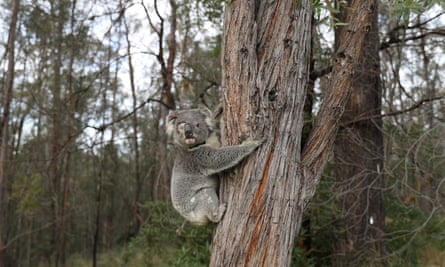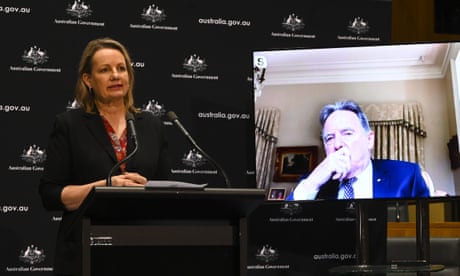Extract from The Guardian
Former senior official warns of going back to the community unrest of the 70s and 80s over conservation issues.

Last modified on Mon 23 Nov 2020 20.01 AEDT
Changes to environment law planned by the Morrison government would spark a return to the “environmental confusion” of the 1970s and 1980s, when there was sustained community unrest over conservation issues, according to a former senior bureaucrat responsible for the legislation.
Gerard Early, now a director with Birdlife Australia, told a Senate inquiry that history suggested a plan to change environment laws to hand greater responsibility for development assessments to the states would just increase risk and uncertainty over proposals, not reduce them as intended.
Early was responsible for the laws, known as the Environment Protection and Biodiversity Conservation (EPBC) Act, for seven years as the head of the approvals and wildlife division of the environment department. He was later a deputy secretary.
He told the inquiry the government’s proposed change would be a case of “back to the future”, effectively returning to the situation before the EPBC Act was introduced in 2000.
“For those who know their history, the period was one of sustained community unrest on environmental issues and significant conflict between the commonwealth and the states and territories,” Early said.
“That is why the commonwealth and states and territories spent almost a decade in the 1990s negotiating a better system where the roles and responsibilities of all governments in Australia were set out clearly and comprehensively. This bill proposes to undermine that system.”
Early’s evidence came at a truncated one-day hearing into the proposed legislative change, which is a near replica of a failed 2014 “one-stop-shop” policy for environment approvals proposed by then prime minister Tony Abbott.
The legislation would allow the federal government to sign bilateral agreements with states and territories to hand over approval powers, starting with Western Australia, which has been calling for the change since last year. The government rammed it through the lower house in September after gagging debate on the bill and amendments proposed by Labor and the crossbench.
The bill had been criticised for reducing federal oversight of decisions that affect the environment without ensuring the states are equipped to carry out comprehensive assessments.
It does not include national environmental standards or create an independent regulator, both key recommendations of an interim report by Graeme Samuel, a former competition watchdog head who is reviewing the laws for the government.
The bill was planned and introduced before Samuel had completed his review. The government has said it is developing national standards, but they have not been released. It has rejected the call for an independent regulator.
Department officials told the inquiry the legislation being examined was not designed to increase environmental protection, as Samuel’s interim report found was necessary. They said it was designed to “rectify anomalies in the EPBC Act when it comes to entering bilateral agreements”.
Early said the bill would eliminate the federal government’s ability to respond to the community’s expectation that it take a leadership role in protecting the environment and biodiversity, including meeting the country’s obligations under international treaties.
“Without proper standards and oversight, we would be back to the environmental confusion of the 1970s and 1980s. And that represents greater risk and uncertainty than anything that currently exists under the EPBC Act, whatever its flaws,” he said.
Groups representing business, the minerals industry, farmers and the oil and gas industry told the inquiry they supported the changes, which most described as largely administrative. They said they would not have an impact on the environment.
Jennifer Westacott, chief executive of the Business Council of Australia, said her members supported Samuel’s findings, which would improve environmental outcomes and efficiency and predictability in assessments. She said the bill was “an important first step” that should kickstart a comprehensive reform package including improved national environmental standards, a strong compliance regime and better data monitoring.
Several witnesses, including scientists and representatives from environment and legal groups, told the inquiry the proposed changes went much further than just an administrative change. They said they could hand decisions over matters of national environment importance to state or lower jurisdictions, potentially including regional and local authorities.
Rachel Walmsley, head of policy and reform with the Environmental Defenders Office, said: “There is nothing in this bill about actually improving environmental protection.”
The Australia Institute, a thinktank, told the inquiry only 0.8% of development proposals had been outright rejected under the laws. Early said this data did not take into account proposals that changed through the approval process, but it showed suggestions the laws were “creating havoc for industry and stopping things is just absolute rubbish”.
The government has received Samuel’s final report, but is yet to release it. His interim report, released in July, found the environment was in unsustainable decline and the EPBC Act was not fit-for-purpose.
The Senate inquiry is due to report on the legislation by Friday, about two weeks after it began.
As the inquiry sat in Canberra the environment minister, Sussan Ley, was in Sydney to announce the government would order a national audit of koala numbers, which have been badly hit by bushfire and development. She promised $18m for a census, restoring koala habitat, health research and veterinary support.
Labor’s environment spokeswoman, Terri Butler, said it came 10 months after the opposition first called for an audit in the wake of last summer’s fires. She accused the government of failing to have a koala conservation strategy. The Greens’ Sarah Hanson-Young said the koala would become extinct unless MPs stopped allowing their habitat to be cleared, and called on the government to support a moratorium.


No comments:
Post a Comment